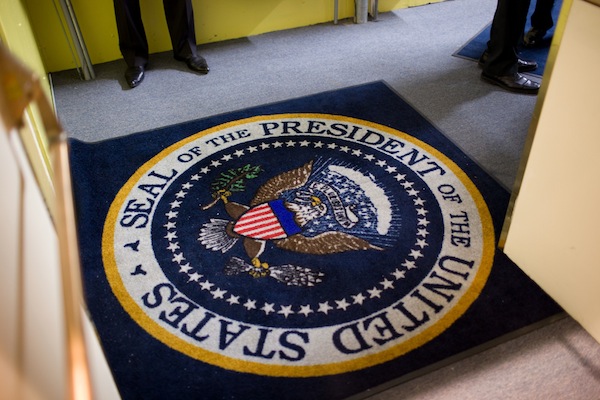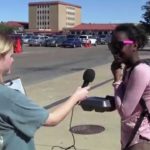Rather than a robust discussion of political ideals on how to better the human race, 2016 has been consumed by this one question.
by Joey Clark
“Go forth and shrink the state.”
These are the final words with which Deirdre McCloskey chose to end her lecture to the Legatum Institute in London on her forthcoming book Bourgeois Equality—the third and final book in her Bourgeois Era series wherein she ventures an answer to the question of why the modern world with all its wealth and liberating effects has come to pass.
As I listen to McCloskey’s clarion call to “go forth”, I find her words plucking at the strings of my heart with a harmony that sings to my mind. This is the leitmotif of the future, a theme worthy of a new kind of politics, or rather, a resurgence of a past politics when men had hope in their liberty and virtue to create a peaceful, cooperative, and just city while remaining wary of their lust to control their fellows. An egalitarianism that respects distance and difference where “everyone can have a go.”
In tune, McCloskey alludes to the music of this movement, giving us a poet’s song where our prose fails, the words of Robert Burns’ “A Man’s A Man For A’ That”:
Then let us pray that come it may,
(As come it will for a’ that,)
That Sense and Worth, o’er a’ the earth,
Shall bear the gree, an’ a’ that.
For a’ that, an’ a’ that,
It’s coming yet for a’ that,
That Man to Man, the world o’er,
Shall brothers be for a’ that.
In the face of immense human challenges, we are presented a basic choice—create or control—and McCloskey answers the question with the former every time. The latter option of control is the province of the state. State imposition may make certain people better off in the short-term, but once the party politics is over, a hangover is soon to make our collective heads ache. The state perverts our values as a people, or as McCloskey would say, our bourgeois values. It renders us confused. Our understanding of our wealth as a people becomes hollowed out, atrophied into mere symbols, ever-changing statistical short-hands, and ultimately, simulacra of our former economic and civic selves.
More than any economic factor or theory of exploitation or institutional arrangement, McCloskey claims our ideas are what enable us to flourish as a species—in particular, our ideas regarding bourgeois virtue and bourgeois equality. Instill virtue and respect people’s equal liberty to pursue their own betterment through trade and innovation—rather than subservience and propitiation to domineering earthly authorities—and watch this wondrous party of enrichment continue. Celebrate the creative, enterprising, and tinkering “town folk” of the world by granting them the right to become as rich as they wish, and we will all be made better off in the long run—even the most “wretched” and “least” among us. Such is what McCloskey calls the “bourgeois deal.”
I am willing to take this deal. I can get behind this sort of politics. This is why I got into politics in the first place—to make my fellows as free as possible so they may pursue a peaceful and prosperous future with the “Sense and Worth o’er a’ the earth…That Man to Man, the world o’er, Shall brothers be for a’ that.”
Though I attempt to carry this tune to my plot on the earth, I keep finding the lyric falling on mostly deaf ears. It’s best if I explain this dilemma by attacking the one question that has been assailing my ears over the last few months. This question seems to be coming at me from every which way, and what’s worse, people seem to offer it up as though they think they are doing me a humble favor by humoring my personal interests. Friendship, it seems, is accepting favors as burdens. My friends and family and acquaintances know I am passionate about politics—that I am a political guy—but that seems to be the full extent of their knowledge. “Oh, Joey he’s into politics,” they say in a vague manner.
I am, indeed, passionate about politics. That is, I adore certain political ideals. I had hoped that once I sounded my “barbaric yawp” for human freedom and dignity over the radio airwaves, I would get my message across. Yet, I have had no such luck. Rather than a robust discussion of political ideals on how better the human race, what I receive in return is this one question.
This one question: it has been haunting me day and night. The radio hosts I work with each day ask me. The radio callers ring our phone line, haranguing me with the same. I then try to find solace at home, only to have pollsters call my humble abode to ask me once again. After dispensing with the pollsters by telling them “I’m in media,” I think I’m in the clear only to have my father ask me this god forsaken inquiry over our steak dinner, forcing me to fight back a gagging urge to vomit. My brother asks me in the morning. My friends text me it from St. Louis, Auburn, Birmingham, and D.C. My uncle asks me at a birthday party, my aunt at a football watching party, and even my sweet granny puts it to me as I munch nervously on a chocolate Christmas truffle.
O the humanity! O brave new world! And people wonder why I drink my whiskey neat and coffee black.
What is this one question, you may be wondering? Well, it comes in many different variations, but the essence is this: who do you like for President of the United States?
I can’t tell you how many times I have answered, “No one, and I expect to be greatly disappointed.” But the truth is my disappointment has already arrived with a flood of different questions washing over this mushy sponge I carry in my skull.
What is it about a presidential election that makes the people jettison their ideals and hitch their sense of positive liberty to the state? Why do people find hope, a false hope to be sure, in the ambitions of the powerful? What is it about Hillary Clinton or Bernie Sanders or Donald Trump or Ted Cruz or Marco Rubio that inspires such an overbearing amount of servile speculation? How does speculating over this spectacle better anyone’s lives? How is the “freedom” to choose one’s ruler true freedom whatsoever? And being that the few things one should be happy to do on one’s knees are mostly sexual and not political, when did we start thinking the best way to save the poor and the middle-class is fall on our knees at the ballot box? When did deference and prostration to an authority ever make men free? And selfishly, how can I make people stop asking me this serf-worthy question?
Well, for the time being, I do not know the answer. But let it be known, though I love politics, consider me like Otanes. Just as Isaiah Berlin said of that ancient Greek, I wish “neither to rule nor to be ruled — the exact opposite of Aristotle’s notion of true civic liberty,” the exact opposite of our democratic elections for president.
I would much rather everyone be free to pursue their peaceful interest rather than “free” to serve this or that state leader. I would much rather we “go forth and shrink the state.”




4 comments
… [Trackback]
[…] There you can find 62621 additional Info on that Topic: thelibertarianrepublic.com/the-one-question-ruining-politics-for-me-in-2016/ […]
… [Trackback]
[…] Read More Info here to that Topic: thelibertarianrepublic.com/the-one-question-ruining-politics-for-me-in-2016/ […]
… [Trackback]
[…] Find More Information here to that Topic: thelibertarianrepublic.com/the-one-question-ruining-politics-for-me-in-2016/ […]
… [Trackback]
[…] Read More Information here on that Topic: thelibertarianrepublic.com/the-one-question-ruining-politics-for-me-in-2016/ […]